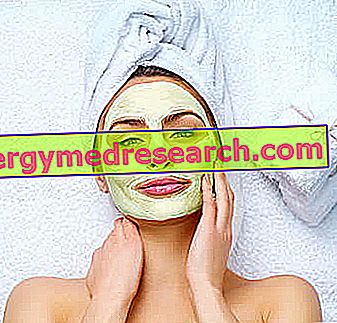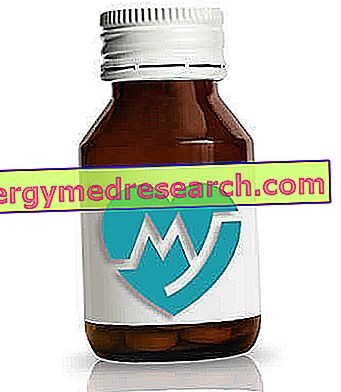Introduction
The phytotherapeutic world offers a certain variety of natural remedies derived from plants, designed to intervene not only on acne, but also on the factors that trigger it.

Effective natural remedies for acne must carry out anti-inflammatory, astringent, antiseptic and detoxifying properties, in order to reduce skin impurities.
Causes and Natural Remedies
Even if you decide to resort to natural remedies to fight acne, the treatment cannot disregard the causes that triggered the acne manifestation.
Therefore, considering that the causes of acne are many and varied, the remedy must be targeted for that particular disorder.
For example, hepato-intestinal disorders can also be reflected in the skin through acne manifestation. In this regard, it is the duty of the specialist to direct the patient towards the most effective natural treatment to restore balance to the liver and intestinal level: choleretic-cholagogue, disinfectant and purifying drugs should be preferred.
Furthermore, acne may be the consequence of hormonal disorders, puberty and menstruation: in this case, it will be appropriate to use medicinal plants with follicle-like action, suitable for regularizing the menstrual cycle.
Furthermore, the subject's psychological condition is also a probable cause: tensions, worries and anxieties are perceived at the level of the adrenal glands, which respond with a hyper-production of hormones (among all, cortisol). In such circumstances, as a natural remedy, the herbalist can recommend drugs whose active ingredients act as anxiolytics and sedatives of the central nervous system. As a result, the skin will suffer less from the stress to which the individual is subjected and it is likely that the acne will be attenuated until it disappears.
If acne is the reflection of a food allergy, the most effective remedy is the elimination of food from the diet: the allergy disappears, as does acne.
Acne and Nutrition
Natural remedies, however, cannot determine a clear involution of acne if the affected person follows an unbalanced diet.
Indeed, it is well known how an individual's diet can affect the appearance and health of the skin. For this reason, it is of fundamental importance to adopt a correct and balanced diet, devoid of excesses, poor in fatty foods and rich in sugars.
To all this, it is essential to combine an adequate degree of hydration that can be achieved and maintained by drinking at least two liters of water per day.
Behavioral measures
Similarly to what was said about nutrition, in the treatment of acne it is important to also adopt some behavioral measures, in order to assist the action carried out by the natural remedies to be used. In detail, if you suffer from acne, you need to:
- Avoid applying irritating cosmetic creams;
- Avoid the use of fatty substances on the skin, which can aggravate acne;
- Avoid bursting blackheads, which can infect nearby cells and enhance acne;
- Do not rub the area affected by acne continuously;
- Thoroughly cleanse the skin with non-aggressive products, taking care to completely remove any make-up.
Only if these simple precautions are respected, the use of natural remedies is appropriate: in herbal medicine you can find various natural preparations such as purifying teas, syrups, elixirs, tablets and drops for internal use, or creams, ointments, gels, compresses or masks for a local application.
For an enhanced action, it is recommended to combine a product orally (orally) with a topical preparation.
Following are some models of effective natural remedies for acne; we will briefly analyze each herbal preparation to combat acne manifestation.
Natural acne cream
A herbal acne cream should be spread on clean skin, possibly after a warm bath, as the pores of the skin are "prepared" to accommodate the natural remedy. Alternatively, before applying the natural remedy, it is possible to perform steam baths by placing your face in front of a container containing water previously brought to the boil. To prevent the steam from escaping, it is also possible to cover the head with a towel. In doing so, the pores will open thanks to the heat of the steam and will be "ready" to receive the natural cream.
This cream is characterized by capillarotropic, vasoprotective, anti-inflammatory, astringent and soothing drugs. Below, the main ingredients that can be included in the composition of a natural cream to fight acne will be illustrated.
Burdock
The burdock ( Arctium lappa ) is probably the most suitable natural remedy for the treatment of disorders related to acne. Burdock is called an "endocosmetic" because it favors the correct physiology of the skin thanks to sesquiterpenes, polyacetylene sulfonates, caffeilchinici acids (chlorogenic acid) and inulins, which promote depurative and decongestant activity. The burdock is also configured as an excellent natural remedy formulated as an herbal tea, thanks to the inulins, which determine diuretic activity; further, the burdock purifies the kidneys and the liver due to the presence of germicidal substances. Furthermore, it is rich in mucilages which attribute to the cream soothing properties; polyacetylenes present, on the other hand, promote antibacterial and antimicrobial activity.
Horse chestnut
The horse chestnut extract ( Aesculus hippocastanum ) is a natural remedy particularly suitable for the treatment of decongested, inflamed and acneic skins: the phytocomplex consists of saponins, useful to stimulate micro-circulation. Horse chestnut improves capillary function, being capillarotropic and vasoconstrictor.
Hawthorn
Hawthorn ( Crataegus monogyna ) has a phytocomplex characterized by flavonoids (hyperoside, vitexin), procyanidins, catechins, phenolic acids, amines and triterpenes: the natural remedy is inserted in an anti-acne cream mainly for its anti-inflammatory properties.
Witch Hazel
Also the witch hazel ( Hamamelis virgiliana ) is exploited in the treatment of acne for its marked anti-inflammatory properties (decreases inflammation), astringent, vasoconstrictor and healing.
Aloe vera gel
Aloe vera gel is an excellent natural remedy for acne, as it promotes the anti-inflammatory, skin restoring and astringent activity of the cream. Individuals with acne tend to scratch the affected skin: due to rubbing, the skin is torn, a small hemorrhage is created and a small crust forms: the aloe acts as a good healer.
A cream formulated with these drugs promotes the closure of enlarged pores, keeps the skin toned and protects it, creating a film that acts as a barrier against bacteria and environmental factors. The normalization of skin sebum production will also be promoted.
Internal natural remedies
As mentioned, to get an enhanced action, to natural external remedies to be applied directly to the skin (such as, for example, natural creams), it is possible to associate natural remedies to be taken orally, then internally. Among these, we recall:
- Dandelion ( Taraxacum officinale ): it is an excellent natural remedy designed for a product for internal use (opercula). The dandelion consists of lactone sesquiterpenes, phenylpropanes and phytosterols, which promote diuretic and depurative activity; in addition, it stimulates the glomerulus, thus keeping kidney activity active.
- Live lactic ferments ( probiotics ): live lactic ferments are certainly an essential biotechnological remedy for the balance of intestinal bacterial flora. As we have analyzed, in fact, even the intestinal repercussions can lead to the level of the skin with the formation of acne. Consequently, probiotics are useful for the physiology of the bacterial population.
Clay mask
Periodically, even the clay masks ( Bolus alba ) are recommended, because they are effective in purifying the skin from toxins and bacteria.
The ability of the clay to absorb impurities, taking them from the skin, is known. The clay must be mixed with water (perhaps adding a glycolic extract of burdock, echinacea, artichoke or fumaria), until a fairly solid mass is reached. Clay has the ability to enrich the skin with trace elements such as silicon, iron, calcium, magnesium and aluminum and at the same time purify the skin.
The application of the mask should last for 15-20 minutes, in order to give the clay the time necessary to perform its action. Generally, when the mask is removed with water, the skin appears very dry: for this purpose we recommend the application of a nourishing semi-fat cream (preferably, calendula cream).
Essential oils
Essential oils are an interesting natural remedy against acne, to give tone to the skin and, above all, to disinfect it from acneic impurities. The essential oils of thyme, oregano and lemon act with a broad antibacterial spectrum, but also sage, myrtle, geranium, bitter orange, bergamot, cedar and camphor are very effective remedies. Essential oils can be diluted in very little water and applied to the skin with a cotton pad, or added to creams, masks or light oils.
In this article only four simple different models of herbal preparations have been reported, to give an idea of how drugs can exert their action to fight acne; there are many other natural preparations on the market, suitable for oily, acneic and impure skin. The herbalist or dermatologist will advise the patient on the most suitable natural remedy for his needs, in order to combat acne.



